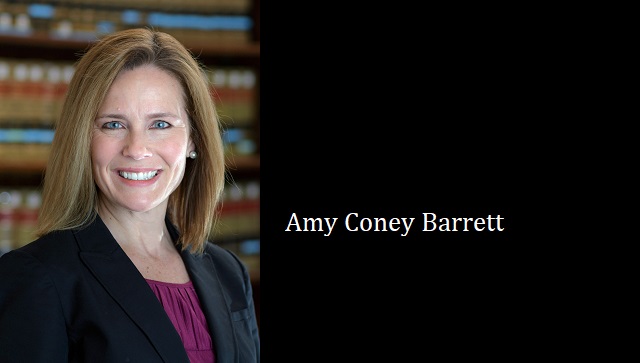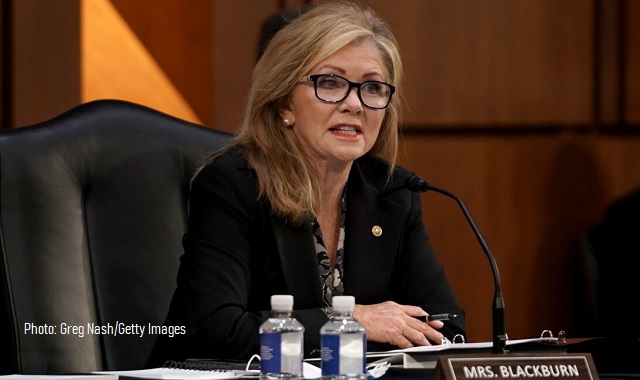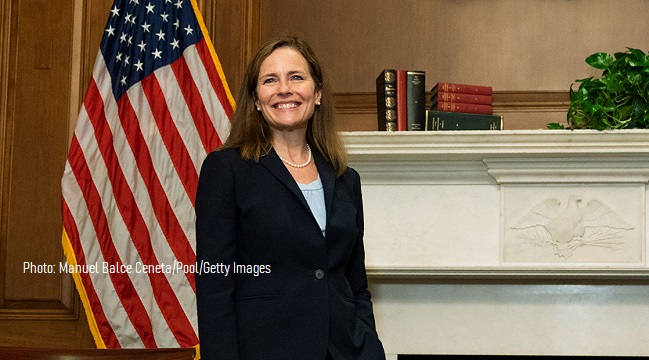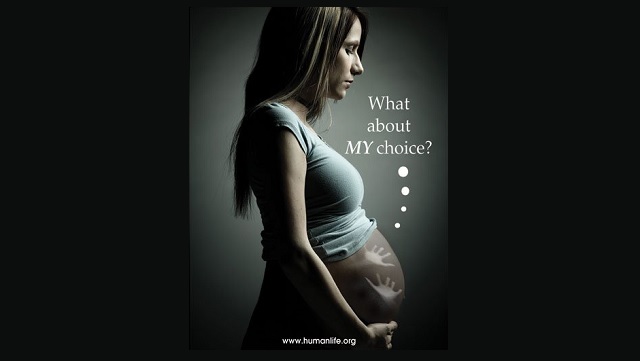
There is a bitter & infuriating irony in the fact that it was the Democrats themselves, who committed the very transgressions they endeavored to attribute to their Republican adversaries.
… it is necessary for a prince, wishing to hold his own, to know how to do wrong…he need not make himself uneasy at incurring a reproach for those vices without which the state can only be saved with difficulty, for if everything is considered carefully, it will be found that something which looks like virtue, if followed, would be his ruin; whilst something else, which looks like vice, yet followed brings him security and prosperity –Nicolo Machiavelli (1469-1527), The Prince, Ch. XV.
Politics is the art of the possible …A statesman…must wait until he hears the steps of God sounding through events; then leap up and grasp the hem of his garment.– Otto von Bismarck (1815–1898).
Prologue
As this is a significantly longer essay than my usual “INTO THE FRAY” column, I have decided to provide a list of the sections headings as a brief “overview” guide for the readers. Accordingly, this rather lengthy—and extensively researched—piece will be composed of the following 200-300 word sections).
| 1. The pot calling the kettle black |
10. The pot calling the kettle black …once again? |
| 2. “Tell Vladimir I will have more flexibility…” |
11. Chaotic kaleidoscope of corruption |
| 3. Dubious deals & corrupt contributions? |
12. Down the rabbit hole? |
| 4. The dubious & the corrupt (cont.) |
13. Rabbit hole? (cont.) |
| 5. “No reasonable prosecutor…” Really?? |
14. A withering Senate report |
| 6. The need to condemn but not convict |
15. Visceral, vicious and vindictive |
| 7. When “extreme carelessness” is not “gross negligence” |
16. “…a terrible & profoundly immoral dirty trick” |
| 8. An iniquitous impeachment over invented infractions |
17. “Nothing is off the table…” |
| 9. Impeaching the unimpeachable? |
|
|
As the end of September approached, President Donald Trump nominated Judge Amy Coney Barrett to replace Justice Ruth Bader Ginsberg, who passed away just a week earlier, to the US Supreme Court.
The pot calling the kettle black
The nomination sparked an eruption of apoplectic protest and incandescent rage from Trump’s political rivals in the Democratic party—particularly as near the end of the Obama incumbency, the GOP prevented the confirmation of then-Democratic nominee, Merrick Garland, as a Supreme Court justice.
There is no doubt that several reasoned arguments can be raised against the Trump administration exploiting the opportunity that the passing of Justice Ruth Bader Ginsburg has created, to advance a Trump nomination to replace her on the bench of the US Supreme Court.
They all should—indeed, must—be ignored!
After all, in light of the long, loathsome litany of vile, venomous villainy that has characterized the (mis)conduct of the Democratic Party over last half-decade and more, its members have little moral right to expect any quarter from their GOP adversaries. Indeed, their sustained malice and misdeeds have left an abysmal trail of needlessly ruined lives, tarnished reputations and squandered public resources.
Indeed, there is a bitter—and infuriating—irony in the fact that it was the Democrats themselves who, irrefutably and incontrovertibly committed the very transgressions they endeavored to attribute, with such blatant disingenuity to their political opponents in the Republican Party. (This sense of rage—and outrage—is intensified by the stunning news involving recently declassified documents showing profound complicity of the previous administration and sympathetic senior CIA and FBI officials, to undermine the Trump campaign and subsequent administration.)
“Tell Vladimir I will have more flexibility…”
Take for example, the allegations of collusion with Russia, something Trump and his associates have been accused of, virtually from the time he first announced his candidacy for the 2016 presidential elections. Yet, years previously (March, 2012), while attending the Nuclear Security Summit in Seoul, Democratic President Barack Obama, was overheard inadvertently in conversation with outgoing Russian President Dmitry Medvedev, assuring him of enhanced coordination—read “cooperation”, read “collusion”—on an array of issues in dispute between the two countries.
Thus, Obama pledged “greater flexibility” on these topics—particularly regarding a planned NATO missile defense system in Europe, which had been a sticking point in relations between the two nations for some time, and to which Russia was strongly opposed.
The widely reported conversation, which took place shortly before the reelected Vladimir Putin was to take over the presidency from Medvedev, went as follows:
Obama: “On all these issues, but particularly missile defense, this can be solved, but it’s important for him to give me space.”
Medvedev: “… I understand. I understand your message about space. Space for you …”
Obama: “This is my last election. After my election I have more flexibility.”
Medvedev: “I understand. I will transmit this information to Vladimir [Putin].”
Clearly, it is hard to interpret this exchange as anything but an expression by Obama of his far-reaching willingness to accommodate Russia’s concerns—despite those of NATO allies—once he was no longer answerable to the American voter and constrained by the US electorate.
Unsurprisingly, publication of the Obama-Medvedev exchange sparked sharp criticism from political rivals in the Republican Party, but perhaps the most telling came from former Speaker of the House Newt Gingrich, who mused: “I’m curious: how many other countries has the president promised that he’d have a lot more flexibility the morning he doesn’t have to answer to the American people?”
Dubious deals & corrupt contributions?
Indeed, when it comes to collaboration with the Russians, the conduct of the Democrats is far more substantive, substantial—and questionable—than that of the Trump team.
After all, while Hilary Clinton was Secretary of State (2009-2013), the Clinton Foundation received around 150 million dollars in donations, while Bill Clinton himself received a half-million dollar fee for a Moscow lecture—just prior to the US government confirmation of a sale (December 2010) entailing transfer of control of around 20% of US uranium resources to Uranium One, a subsidiary of a State owned Russian company, Rosatom. (Also see Cash flowed to Clinton-Foundation as Russians pressed for control of uranium company, New York Times, April 23, 2015.)
Although an FBI investigation of the events surrounding this incident, known as the “Uranium One Episode”, did not result in any criminal indictments, numerous troubling questions continue to enshroud the affair.
These questions were aptly catalogued by The Wall Street Journal editorial board member, Holman W. Jenkins Jr., in a 2018 piece, Uranium One Is A Curious Case. He writes: “…it [is] interesting that the FBI, under its then-chief Robert Mueller, appears to have sat on the case—only getting around quietly to announcing a plea deal with the Russian executive five years later, in 2015…The FBI handled the Uranium One matter in a manner that avoided making immediate trouble for the policy and political interests of Barack Obama and Hillary Clinton.”
The dubious & the corrupt (cont.)
He asks acerbically: “What if it had been known that the FBI was sitting on a case involving demonstrable malfeasance (bribery and kickbacks) by the Russian company’s U.S. arm? What if an eyewitness who had helped crack the case told the FBI (as he now claims he did) that Russian uranium executives had spoken openly of currying favor with the Clinton Foundation to advance their U.S. business?”
In the same caustic tone, he continues: “Would it have been embarrassing for the Obama policy if it were known that the uranium assets the Russian government sought to buy had been accumulated by…entrepreneurs working closely with Bill Clinton? That the Clinton Foundation received $145 million in pledged contributions from people associated with these transactions? That Mr. Clinton had been paid $500,000 for a speech in Moscow?”
His unequivocal answer was: “Yes. It would have raised political difficulties for Mr. Obama’s Russia policy. It would have harmed the reputation of his secretary of state, Hillary Clinton.”
Expressing his skepticism as to the efficacy of the FBI investigation, he remarks in reference to Hillary Clinton’s email scandal: “…if the FBI didn’t find a basis to charge her aides with obstruction and evidence tampering, it’s only because it didn’t want to [sic].”
“No reasonable prosecutor…” Really??
Of course, there are solid grounds for Jenkins’s cynicism regarding the performance of the FBI—particularly with regard to the Clinton email scandal.
Indeed, any fair-minded observer of the then-FBI Director, James Comey, in his testimony before House Oversight and Government Reform Committee on this matter, would almost certainly be astonished by the stunning contradiction between the substance of his testimony and his recommendation not to file criminal charges against anyone involved in the affair.
Nowhere was this more evident than when Comey was questioned by then-South Carolina Rep. Trey Gowdy. Gowdy pressed Comey on the definition of intent and how Clinton could possibly evade punishment.
During the exchange, Comey was repeatedly forced to admit that Clinton has lied as to the handling of her emails, which in effect constituted “false exculpatory statements”. By his own admission, Comey conceded that such statements are generally used “Either for the substantive prosecution or for evidence of intent in a criminal prosecution.”
Gauged against these responses of his, Comey’s earlier almost oxymoronic public statement is—to be charitable–profoundly mystifying: “Although there is evidence of potential violations regarding the handling of classified information, our judgment is that no reasonable prosecutor would bring such a case.”
The need to condemn but not convict
Accordingly, it is not difficult to understand Gowdy’s exasperation and frustration in his closing statement: “So you have a rogue email system set up before she [Clinton]took the oath of office. Thousands of what we now know to be classified emails, some of which were classified at the time.…And this scheme took place over a long period of time and resulted in the destruction of public records yet you say there is insufficient evidence of intent.”
All this brings us back to Holden Jenkin’s previously cited assessment: “…if the FBI didn’t find a basis to charge her aides with obstruction and evidence tampering, it’s only because it didn’t want to.”
Solid corroboration for this assertion comes from a report by CNN—hardly a bed of Rightwing conspiracy theories. The report, citing a well-placed source, stated that “Comey and his FBI colleagues were ‘playing with the language throughout’ the process”, and believed that they “needed to condemn Clinton’s handling of classified information while asserting they would not bring charges.”
Thus, again contrary to his admission in the exchange with Gowdy, Comey claimed: “Although we did not find clear evidence that Secretary Clinton or her colleagues intended to violate laws governing the handling of classified information, there is evidence that they were extremely careless in their handling of very sensitive, highly classified information.”
When “extreme carelessness” is not “gross negligence”
Significantly, the CNN report explains why Comey insisted on using the term “extremely careless” while studiously avoiding use of the term “grossly negligent”, which was dropped after appearing in an earlier draft of Comey’s memo on the Clinton email affair.
According to the CNN report: “‘Grossly negligent,’ the language dropped from the draft, is a term that carries with it legal ramifications. ‘Extremely careless,’ the term Comey ended up using, does not [sic].” Indeed, as “The Hill” points out “…federal law states that gross negligence in handling the nation’s intelligence can be punished criminally with prison time…”
All this prompted Gowdy’s stern reproach of Comey: “…my real fear is this…[the] double track justice system that is rightly or wrongly perceived in this country. That if you are a private in the Army and email yourself classified information you will be kicked out. But if you are Hillary Clinton, and you seek a promotion to Commander in Chief, you will not be. So what I hope you can do today is help the average person, the reasonable person you made reference to…[to] understand why she appears to be treated differently than the rest of us would be.”
An iniquitous impeachment over invented infractions
The same unscrupulous and unprincipled ruthlessness was reflected in the Democrats doomed attempt to impeach Trump over invented infractions—the very infractions that that irrefutably were committed by the former Democratic Vice-President and present Democratic candidate for President, Joe Biden. (See here min 02.31.)
Without delving into the depth of the details surrounding the episode, readers will recall that the impeachment initiative was launched on the basis of two purportedly incriminating telephone calls between Trump and Ukrainian President Zelensky.
According to an unidentified whistleblower(s), reportedly employed in the intelligence community, the calls provided evidence that Trump threatened to withhold US aid to Ukraine as leverage to induce the Ukrainian government to provide incriminating material on Joe Biden, a political rival, and on Biden’s son, Hunter—who, shortly after having been discharged from the Navy, after testing positive for cocaine use, was appointed to the board of a large Ukrainian energy company, Burisma—despite having no obvious experience for the job or the lucrative payments it entailed… and a long record of previous drug and drink addiction.
For transcripts of the Trump-Zelensky talks, declassified and released by the White House, see here & here.
Personally, I would be intrigued to learn how any remotely impeachable act could be gleaned from the contents of the transcripts and would be grateful for any persuasive guidance in this regard.
Impeaching the unimpeachable?
Indeed, the Democrats impeachment initiative raises several troubling questions.
For instance, are the Democratic instigators seriously suggesting that the US President should not be concerned as to conditions of governance in a country that is the recipient of US aid? If he should, then surely nothing could be more appropriate than to inquire as to those conditions and seek to investigate whether or not US citizens are, in anyway, playing a detrimental role in them.
Accordingly, then, should Biden snr. and his family members be immune to such investigation just because, at the time, he happened to be a possible candidate in an upcoming presidential race?? For if so, would the request for an investigation be unimpeachable (pardon the pun), if it related to someone who is not a political rival of the President—leaving his rivals free to engage in whatever nefarious activity they may choose?
The pot calling the kettle black…once again?
Of course, the jaw-dropping truth is that Joe Biden himself engaged, by his own admission, in precisely the act for which Trump was impeached: Using foreign aid as a lever for furthering personal interests.
Thus, in December 2015, Joe Biden, then-U.S. Vice President, warned Petro Poroshenko, the Ukrainian President that, if he did not fire Viktor Shokin, then Ukraine’s Prosecutor General, he would block the transfer of a billion dollars of US aid to the country. Biden snr. boasted openly about getting Shokin fired. During a 2018 speech at the Council on Foreign Relations, he proudly proclaimed he withheld $1 billion in loan guarantees for Ukraine in order to force the government to address the problem with its top prosecutor. (Also see here min. 52.30-53.15.)
In Biden snr’s own words: “I said, nah, I’m not going to—or, we’re not going to give you the billion dollars. They said, you have no authority. You’re not the president. The president said…I said, call him. I said, I’m telling you, you’re not getting the billion dollars. I said, you’re not getting the billion. I’m going to be leaving here in, I think it was about six hours. I looked at them and said: I’m leaving in six hours. If the prosecutor is not fired, you’re not getting the money. Well, son of a bitch. He got fired. And they put in place someone who was solid at the time.”
Chaotic kaleidoscope of corruption
Interestingly, the individual that Biden snr. referred to as “solid”, was Yuriy Lutsenko , who several years previously was sentenced to four years in prison for embezzlement and abuse of office (with confiscation of his property).
Of course in the chaotic, kinetic kaleidoscope of corruption that is Ukrainian politics, it is difficult to know when, and if, the state organs of law and order have been exploited to settle political scores—and Lutsenko’s conviction was criticized by many as political persecution. Thus, despite doubts in this regard, it is interesting to note that the liberal/left leaning “New Yorker” commented: “Lutsenko, sometimes referred to simply as “the corrupt prosecutor general” of Ukraine, has been portrayed, hardly without reason, as an unscrupulous politician prone to telling lies to further his personal ambitions.” A similar assessment was expressed by former US Ambassador to Ukraine, Marie Yovanovitch, a central witness in the impeachment process against Trump, in a closed-door deposition, describing Lutsenko as an “opportunist” who “will ally himself, sometimes simultaneously, with whatever political or economic forces he believes will suit his interests best at the time.”
This characterization of Lutsenko appears rather accurate.
Indeed, there is a bitter irony in the fact that it was Lutsenko, who reportedly fed damaging information to Trump’s envoy to Ukraine, Rudy Giuliani—which in itself seems to raise doubt as to judgement of the former vice-president, in view of his earlier characterization of Lutsenko as “solid”.
Down the rabbit hole?
The revelation of Biden snr’s use of US aid to coerce the Ukrainians over conduct of the investigation of corruption in the country, including into a company of whose board Biden jnr. was a member, sent the Democrats scrambling to concoct unlikely unconvincing accounts as to the real motivation behind the then-Vice-President’s strongarm tactics.
According to this version, the purpose of Biden snr’s demand to replace the then-Ukrainian prosecutor was to beef up investigation into corruption including into Burisma—thus exposing Biden jnr. to greater scrutiny, rather than covering for him.
For example, James Risen of “The Intercept” wrote: Joe Biden …was not trying to protect his son — quite the reverse. The then-vice president issued his demands for greater anti-corruption measures by the Ukrainian government despite the possibility that those demands would actually increase – not lessen — the chances that Hunter Biden and Burisma would face legal trouble in Ukraine.
There are good reasons for treating this version with a healthy dose of skepticism.
On the one hand, as Pulitzer laureate Adam Entous reveals in Will Hunter Biden Jeopardize His Father’s Campaign?, members of Biden’s staff found him highly sensitive—even intimidating—with regard to any criticism of his family. A former Biden adviser told Entous, “Everyone who works for him has been screamed at”, and a business associate remarked that having difficult conversations with Biden about his family seemed like “…really touching a very fragile part of him.”
On the other hand, as Entous writes elsewhere: “Hunter, who had long struggled with severe drug and alcohol problems, had almost no expertise in the region or in energy, and many U.S. and Ukrainian officials suspected that Zlochevsky [Burisma’s founder /owner] had put Hunter on the [Burisma]board in the hope of protecting himself from prosecution.”
Rabbit hole? (cont.)
According to Entous: “Some White House and State Department officials disapproved of Hunter’s role at Burisma, concerned about the appearance of a conflict of interest, but they mostly avoided discussing the matter with Joe Biden. The Vice-President had an unwritten “Don’t ask, don’t tell’ policy when it came to his family members’ business decisions. The issue seemed too sensitive to raise…”
Accordingly, given: (a) Joe Biden’s extreme sensitivity regarding any adverse criticism of members of his family and their business dealings; (b) the fact the Burisma and its founder were the focus of ongoing corruption investigations; (c) the concern voiced both in Washington and Kiev over Hunter Biden’s presence on the Burisma board; the record of Hunter Biden’s “problematic past”, to which option would an unbiased adjudicator attribute greater credence:
- That which maintains that the purpose of Joe Biden’s strongarm action was to protect his son from greater scrutiny by the Ukrainian authorities; or
- That which maintains that the purpose of Joe Biden’s threats of punitive action was to expose his son to greater scrutiny by the Ukrainian investigators?
Clearly, under the specified circumstances, there seems very little reason to believe that the wish to institute greater scrutiny was a more plausible motive than the desire to protect—and every reason to believe the converse.
Accordingly, the latter should be assumed to be the true version of events–i.e. the US foreign aid was used to further personal interest—precisely the purported foundation for the Democrats impeachment initiative against Trump…on the basis of far more tenuous grounds.
A withering Senate report
Indeed, in September 2020, the U.S. Senate Committee on Homeland Security and Governmental Affairs published a withering report into the allegations of corruption against Hunter Biden in Ukraine vis-à-vis his dealings with Burisma.
This official US Senate Report strongly underpins the validity of the notion that Biden snr. would have been very loath to expose Biden jnr. to enhanced scrutiny (See for example “Key Findings pp. 4-6).
A few selected citations from the almost 90-page document will illustrate the point.
In the executive summary (p.3), we read: “On April 16, 2014, Vice President Biden met with his son’s business partner, Devon Archer [recently convicted for securities fraud and conspiracy], at the White House. Five days later, Vice President Biden visited Ukraine, and he soon after was described in the press as the ‘public face of the administration’s handling of Ukraine.’”
The report continues: “The day after his visit, on April 22, Archer joined the board of Burisma. Six days later, on April 28, British officials seized $23 million from the London bank accounts of Burisma’s owner, Mykola Zlochevsky. Fourteen days later, on May 12, Hunter Biden joined the board of Burisma, and over the course of the next several years, Hunter Biden and Devon Archer were paid millions of dollars from a corrupt Ukrainian oligarch for their participation on the board.”
The BBC cites from the reports, noting: “Hunter Biden’s position on Burisma’s board was problematic and did interfere in the efficient execution of policy with respect to Ukraine… Biden relatives ‘cashed in on Joe Biden’s vice presidency’ ..‘Hunter Biden’s position on Burisma’s board cast a shadow over the work of those advancing anticorruption reforms in Ukraine…creating criminal financial, counterintelligence and extortion concerns’”.
The report ends with the following disturbing statement: “The…investigation has faced many obstacles from the [Democratic] minority and from executive agencies that have failed to comply with document requests. Accordingly, there remains much work to be done.”
Visceral, vicious and vindictive
The malevolent malfeasance of the Democrats was on stark display in mid-2018 with the nomination, and later appointment, of Brett Kavanaugh as Supreme Court Justice.
As readers will recall, Democrats endeavored to derail Kavanaugh’s conformation by raising flimsy allegations regarding a purported over-amorous teenage episode, involving one, Christine Blasey Ford, today a psychology professor, which supposedly took place almost 40 years in the past, when both were minors—as if that had any bearing on Kavanaugh’s attitude, aptitude and/or acumen as a full-grown adult…almost four decades later. In their fervor to block Kavanagh’s appointment, the Democrats showed they would baulk at nothing, however underhand and meanspirited, and that they had no compunction in trying to destroy his good name, and professional standing, regardless of the cost on his family.
Significantly, although Blasy Ford claimed to recall the alleged attack itself in some detail, she somehow could not remember any other potentially corroborative details—such as where the incident supposedly took place, how she got there and how she got back home. Moreover, no corroborating witnesses could be located and those named as such by Blasy-Ford, such as Leland Ingham Keyser, did not substantiate her accusations—even claiming to have been pressured by Blasy-Ford sympathizers to falsely implicate Kavanaugh.
“…a terrible & profoundly immoral dirty trick”
It is thus difficult to disagree with David French, who referred to the Democratic initiative as “a terrible and profoundly immoral political dirty trick”.
He writes: “What Dianne Feinstein [the Democratic Senator whom Blasy-Ford initially contacted] has done to Brett Kavanaugh is unconscionable. She sat on a vague, anonymous accusation for months, refused to question Kavanaugh about it, refused to demand further substantiation, and then actually had the audacity to publicly refer it to law enforcement without providing a single shred of evidence that the referral was warranted. This is character assassination on a grand scale.”
It was hardly surprising, therefore, that Senator Chuck Grassley (R., Iowa), who chaired the Judiciary Committee during Kavanaugh’s bitter confirmation process, voiced grave disapproval at the shameful tactics adopted by the Democrats and the motley collection of Kavanaugh accusers that emerged in their wake, several of whom he referred for criminal investigation by the Dept. of Justice. He commented: “When individuals intentionally mislead the committee, they divert important committee resources during time sensitive investigations and materially impede its work. Such acts are not only unfair; they are potentially illegal. It is illegal to make materially false, fictitious, or fraudulent statements to congressional investigators. It is illegal to obstruct committee investigations.”
Grassley also expressed his concern for future judicial confirmation hearings, warning that false allegations simply bog down the committee and squander its resources.
He urged: “The next Supreme Court nominee should not have to defend himself or herself against baseless and fabricated allegations, and committee staff should not have to spend valuable time investigating them”, which brings us back full circle to the issue with which we began this essay—the upcoming confirmation hearing for Justice Ruth Bader Ginsberg’s replacement on the bench of the Supreme court—Amy Cony-Barrett.
“Nothing is off the table…”
The placement of Supreme Court justices is arguably one of the most impactful and indelible actions an incumbent president can perform. It is precisely because of this reason that the Democrats oppose it with such vehement passion.
Thus, even before Trump had nominated Cony Barrett, the Senate Minority Leader, Chuck Schumer (D., NY), warned that if the confirmation procedure goes ahead “nothing is off the table”. He underscored: “Our No. 1 goal must be to communicate the stakes of this Supreme Court fight to the American people,”—which is, of course, exactly why the Republicans must press on regardless.
Indeed, in light of the long—yet far from exhaustive—litany of loathsome conduct of the Democratic Party, showing scant regard for personal lives of political adversaries or respect for national institutions, the Republicans must be relentless in pushing forward with the upcoming confirmation hearing of Amy Cony Barrett.
In this regard, they must unequivocally show that “everything, indeed, is on the table”.
©Martin Sherman. All rights reserved.





